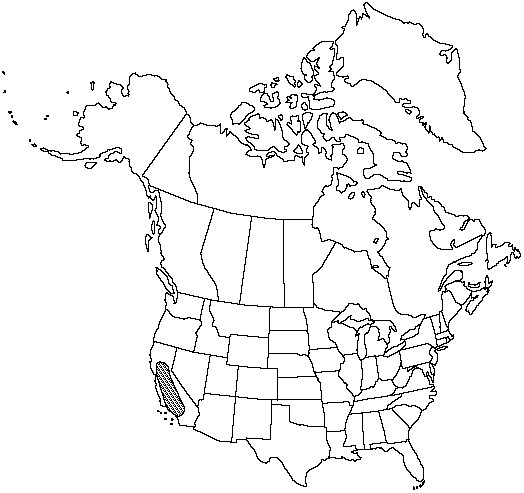Difference between revisions of "Cheilanthes cooperae"
Bull. Torrey Bot. Club 6: 33. 1875.
FNA>Volume Importer |
FNA>Volume Importer |
||
| Line 47: | Line 47: | ||
|publication year=1875 | |publication year=1875 | ||
|special status= | |special status= | ||
| − | |source xml=https://jpend@bitbucket.org/aafc-mbb/fna-data-curation.git/src/ | + | |source xml=https://jpend@bitbucket.org/aafc-mbb/fna-data-curation.git/src/f50eec43f223ca0e34566be0b046453a0960e173/coarse_grained_fna_xml/V2/V2_364.xml |
|genus=Cheilanthes | |genus=Cheilanthes | ||
|species=Cheilanthes cooperae | |species=Cheilanthes cooperae | ||
Revision as of 20:49, 16 December 2019
Stems compact to short-creeping, usually 4–8 mm diam.; scales brown at base and darker toward tip, linear-subulate, straight to slightly contorted, loosely appressed, persistent. Leaves clustered, 5–30 cm; vernation circinate. Petiole dark brown, flattened or slightly grooved distally on adaxial surface. Blade linear-oblong to lanceolate-ovate, 3-pinnate at base, 1.5–5 cm wide; rachis flattened or slightly grooved adaxially, lacking scales, with monomorphic pubescence. Pinnae not articulate, dark color of stalk continuing into pinna base, basal pair slightly smaller than adjacent pair, ± equilateral, appearing hirsute adaxially. Costae green adaxially for most of length; abaxial scales absent. Ultimate segments linear-oblong to ovate, not beadlike, the largest 3–5 mm, abaxially and adaxially hirsute with long, strongly flattened hairs. False indusia marginal, weakly differentiated, 0.05–0.25 mm wide. Sori usually discontinuous, concentrated on apical and lateral lobes. Sporangia containing 64 spores. 2n = 60.
Phenology: Sporulating late spring–summer.
Habitat: Calcareous cliffs and ledges, usually on limestone
Elevation: 100–700 m
Discussion
Although scattered throughout much of California, Cheilanthes cooperae is apparently rare and quite localized. It appears to be most closely related to C. viscida, from which it differs in lacking glandular pubescence. The ranges of the two species do not overlap, and they seem amply distinct.
Selected References
None.
